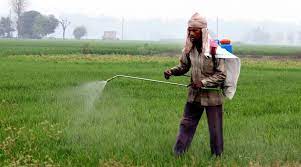NEW DELHI, Mar 17: India imported 34.19 lakh tonnes of fertilisers, including urea and DAP, from Russia during April-February of the current fiscal, highest in the last three years, according to the data placed before Parliament.
The imports have risen notwithstanding the Russia-Ukraine war.
“….Import of urea in the current year up to February (during the ongoing Ukraine war) is more than double as compared to the previous year,” Minister of State for Fertilisers Bhagwanth Khuba said in his written reply to the Lok Sabha.
Out of total fertiliser import of 34.19 lakh tonnes, about 6.26 lakh tonnes of urea was imported till February of the ongoing 2022-23 financial year, as against 2.80 lakh tonnes imported during the entire previous fiscal, he said.
Apart from urea, Di-Ammonium Phosphate (DAP), Muriate of Potash (MoP) and NPK were the other fertilisers imported from Russia.
DAP imports stood at 7.65 lakh tonnes, MoP at 0.43 lakh tonnes and NPK at 19.85 lakh tonnes during April-February period of the current fiscal, the data showed.
Total fertiliser imports from Russia were at 19.15 lakh tonnes during the 2021-22 fiscal, 19.15 lakh tonnes during the financial year 2020-21 and 11.91 lakh tonnes in 2019-20 fiscal year.
Urea and DAP are two largely consumed fertilisers in the country.
The minister said that the government has taken several measures to boost the domestic urea production. Six new urea units have been set up under the New Investment Policy.
In a separate reply, he said the availability of fertilisers has remained comfortable in the country during the 2022-23 rabi season.
The gap between demand and production of urea and other fertiliser is met through imports. “The imports are planned well in advance to ensure timely availability,” he added.
The minister said that the state governments are regularly advised to coordinate with manufacturers and importers of fertilisers for streamlining the supplies through timely placement of indents for railway rakes.
The movement of all major subsidised fertilisers is monitored throughout the country via an online web-based monitoring system called Integrated Fertiliser Monitoring System (iFMS), he added. (PTI)


